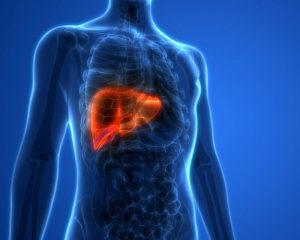Have you been diagnosed with cirrhosis and ascites? These are two closely related conditions that often happen together. There’s no guarantee that you’ll be diagnosed with both, but if you have cirrhosis there’s a relatively good chance you’ll also have ascites as a symptom. How about cirrhosis and ascites life expectancy?
Liver disease starts with a condition known as fatty liver, but it can develop into more serious conditions including liver scarring (cirrhosis). Late-stage liver disease can cause various health issues and symptoms like abdominal fluid buildup (ascites). This can make it tougher to deal with liver disease.
There are different issues to take up if you have late-stage liver disease and ascites. This includes symptoms, diagnosis, symptoms, and treatment. You’ll also want to know the average life expectancy. The average lifespan for patients with ascites is 20 to 58 weeks. However, the figure differs based on the root cause of the fluid buildup. For example, patients with heart failure can often live with ascites for years. However, the outlook is bleaker for people with late-stage cirrhosis. As always it’s critical to manage your conditions and overall health as well as possible to extend your life expectancy.
What Exactly Is Cirrhosis?
Liver disease is one of the most serious diseases that can happen in a vital organ. This condition includes different stages like fatty liver disease (FLD). However, the condition can progress to more serious conditions like hepatitis.
Cirrhosis refers to tissue scarring that replaces healthy liver cells/tissues. People often linked the liver disease to alcoholism but patients who don’t do heavy drinking can also get liver disease.
The development of cirrhosis involves the liver trying to repair itself. This happens when the vital organ gets injured. This could be through causes like alcoholic drinks or disease. The scar tissue results when the liver tries to heal itself.
When more scar tissue develops this can result in cirrhosis over time. This results in different results like lower liver function. If liver cirrhosis worsens it becomes very serious. So it’s important to deal with it as quickly as possible.
One of the drawbacks of cirrhosis-caused damage is it’s usually permanent. The key is to get an early diagnosis. Getting the right treatment can reduce damage and sometimes even reverse it. However, it all starts with getting tested for liver disease/cirrhosis.
Symptoms
The symptoms linked to liver scarring including:
- Fatigue/Drowsiness
- Confusion
- Slurred speech
- Itchy skin
- Nausea
- Red palms
- Jaundice (yellow eyes/skin)
- Spider web blood vessels
- Weight loss
- Ascites (fluid buildup in abdomen)
- Loss of appetite
- Swelling (feet, ankles, legs)
- Easy bruising
It’s important to contact your doctor if the symptoms get worse. This could be a sign of late-stage cirrhosis, which requires stronger treatments.
What Causes It?
There are various possible causes of cirrhosis. They include:
| Medications | Copper build-up in liver |
| Infections | Heavy alcohol drinking |
| Genetic disorders | Immune system conditions |
| Liver scarring | Non-alcoholic fatty liver disease (NAFLD) |
| Hepatitis B/C/D | Blocked bile duct |
| Iron build-up |
If you have multiple symptoms you should schedule a doctor’s appointment. He/She can do an exam and order tests to find out if you have cirrhosis.
How About Ascites?
This condition is caused by fluid buildup in the patient’s abdomen. It can result in swelling that happens within a couple of days or a few weeks. This condition can cause various symptoms including fullness feeling, breathlessness, nausea, and sleepiness.
The fluid buildup is usually linked to liver disease. However, there are other possible causes including heart failure and cancer. The fluid buildup results from other causes.
Ascites can cause different symptoms. They include weight gain and stomach swelling. The treatments and outlook are based on the particular health condition that’s causing the symptoms.
A doctor can monitor ascites by taking different steps. They include monitoring weight and measuring the stomach’s width. This can help to determine whether or not the condition is progressing.
Late-stage liver disease known as cirrhosis is one of the various causes of ascites. However, there are other causes including:
- Kidney disease
- Heart failure
- Cancer
- Tuberculosis
- Under-active thyroid
- Pancreatitis
It’s worth noting that cirrhosis is one of the main causes of ascites. So if you have this liver condition, there’s a chance you might also develop fluid buildup in the abdomen.
Cancer is another possible cause of this condition. It can involve different kinds including stomach, lung, pancreas, breast, etc.
There are various symptoms to watch out for including:
- Nausea
- Constipation
- Fluid retention
- Sleepiness
- Breathless
Fluid buildup in the abdomen can put pressure on other vital organs. That can cause discomfort and other symptoms like stomach/back pain, bloating, and problems moving/sitting.
When ascites is caused by liver cirrhosis there are various treatments including water tablets and reducing salt intake. Liver tablets can increase urination while less salt consumption can help to prevent extra fluid buildup.
In several situations this approach is effective. However, some ascites are diuretic-resistant. There are various other treatments for severe cases including chemotherapy. As always it’s important to get diagnosed early.
Cirrhosis and Ascites Life Expectancy and Home Remedies
If you have late-stage liver disease and ascites it’s important to know the likely life expectancy. The general life expectancy for ascites is about 20 to 58 weeks, or 5 to 13 months. These figures are for ascites in general so the condition/disease causing it will likely affect the outlook.
In fact, the cause of the fluid buildup can have a major effect on the average lifespan. Cancer patients with ascites often live for years. Meanwhile, the outlook is bleaker for cirrhosis patients. There are various X-factors including lifestyle changes and treatments used
Here are some home remedies to try:
- CARROT JUICE: This remedy requires carrots (3-4) and a juicer. First, remove the juice from fresh carrots. If you want you can also add ginger juice for extra flavor. Then drink this home remedy to treat ascites.
- GARLIC JUICE: Yes, garlic juice is a thing. This home remedy requires garlic cloves (3-4), and garlic press. Use the garlic press to remove the juice. On an empty stomach drink ½ tablespoon of herbal juice. Another option is to swallow a couple of ounces of chopped garlic with water (2 ounces).
- GINGER: This recipe requires a piece of ginger, honey, and hot water (1 cup). First, crush up the ginner a little and add it to the hot water. Steep the herb for 5-7 minutes. Then after straining the water, add a little honey. Drink the warm ginger tea to help relieve symptoms of fluid retention in the abdomen.
- EPSOM SALTS BATH: This is a basic recipe that only requires Epsom salt (1 cup) and warm water. Simply soak your feet in this solution every-other night. This can help to work as a body detox and reduce swollen legs. It also helps to relax you. Another plus of the Epsom salts is the skin can absorb it to deal with cirrhosis and ascites.























